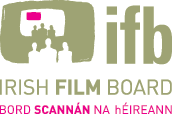European Commisson Tackles Digitisation and Copyright
The European Commission had adopted a Communication on Copyright in the Knowledge Economy, which aims to tackle the issue of legal challenges of mass-scale digitisation and dissemination of books, particularly in relation to the European library collections.
The Communication was jointly drawn up by Commissioners Charlie McCreevy and Viviane Reding. Digital libraries such as Europeana will provide researchers and consumers across Europe with new ways to gain access to knowledge. For this, however, the EU will need to find a solution for orphan works, whose uncertain copyright status means they often cannot be digitised. Improving the distribution and availability of works for persons with disabilities, particularly the visually impaired, is another cornerstone of the Communication.
On adoption, Commissioners McCreevy and Reding stressed that the debate over the Google Books Settlement in the United States once again has shown that Europe could not afford to be left behind on the digital frontier.
"We must boost Europe as a centre of creativity and innovation. The vast heritage in Europe's libraries cannot be left to languish but must be made accessible to our citizens", Commissioner McCreevy, responsible for the Internal Market, stated.
Commissioner Reding, in charge of Information Society and Media, said: "Important digitisation efforts have already started all around the globe. Europe should seize this opportunity to take the lead, and to ensure that books digitisation takes place on the basis of European copyright law, and in full respect of Europe's cultural diversity. Europe, with its rich cultural heritage, has most to offer and most to win from books digitisation. If we act swiftly, pro-competitive European solutions on books digitisation may well be sooner operational than the solutions presently envisaged under the Google Books Settlement in the United States."
The Communication addresses the actions that the Commission intends to launch: digital preservation and dissemination of scholarly and cultural material and of orphan works, as well as access to knowledge for persons with disabilities. The challenges identified by the Commission today stem from last year's public consultation on a Green Paper ( IP/08/1156 ), the Commission's High Level Group on Digital Libraries and the experiences gained with Europe's Digital Library Europeana (IP/09/1257).
The recent information hearings held by the Commission on the Google Books Settlement Agreement highlighted the anomalous situation that would arise were the
Settlement to be approved, namely that the vast number of European works in U.S. libraries that have been digitised by Google would only be available to consumers and researchers in the U.S. but not in Europe itself. Ensuring that Europeans are given access to their own cultural heritage, while European authors are fairly remunerated, is therefore of immediate concern and will require European responses, as recently stressed jointly by Commissioners Reding and McCreevy (MEMO/09/376)
Digital Preservation and Dissemination
The Commission will now engage in a stakeholder dialogue to find viable solutions for simple and cost-efficient rights clearance covering mass-scale digitisation and the online dissemination of library collections still protected by copyright. This concerns both out-of-print works and orphan works, i.e. works whose owner cannot be identified or located.
Orphan Works
The digitisation and dissemination of orphan works pose a particular cultural and economic challenge – the absence of a known rightholder means that users are unable to obtain the required authorisation, e.g. a book cannot be digitised. Orphan works represent a substantial part of the collections of Europe's cultural institutions (e.g., the British Library estimates that 40 percent of its copyrighted collections are orphan 1 ). The Commission will now examine this phenomenon more in detail via an impact assessment. The aim is for an EU-wide solution to facilitate the digitisation and dissemination of orphan works and the establishment of common 'due diligence' standards to recognise orphan status across the EU. First progress in this respect has already been made by the ARROW (Accessible Registries of Rights information and Orphan works) project which gathers national libraries, collective management organisations and publishers and is co-funded by the European Commission under the eContent plus programme (€ 2.5 million). This project (launched in November 2008 ) is aimed at identifying rights holders and clarifying the rights status of a work, including whether it is out of print or orphan: "The EU-funded ARROW project is a first step to link Europe's different rights registries and make it easier to identify rights holders," said Commissioners Reding and McCreevy today: " We call on national libraries, collective management organisations and publishers to build on this good start and work with the Commission to develop a pro-competitive and pan-European system of book registries that will allow for cross-border licensing under a transparent and affordable pricing system, while ensuring a fair remuneration of authors."
Access for Persons with Disabilities
Persons with disabilities experience obstacles in accessing information. In particular, visually impaired people experience a "book famine" – only 5% of European publications are available in accessible formats, a situation compounded by restrictions on cross-border distribution, even between countries sharing a language. A stakeholder forum on the needs of disabled persons, in particular visually impaired persons, will examine policy responses, including ways to encourage the unencumbered EU trade of works in accessible formats.





No comments:
Post a Comment